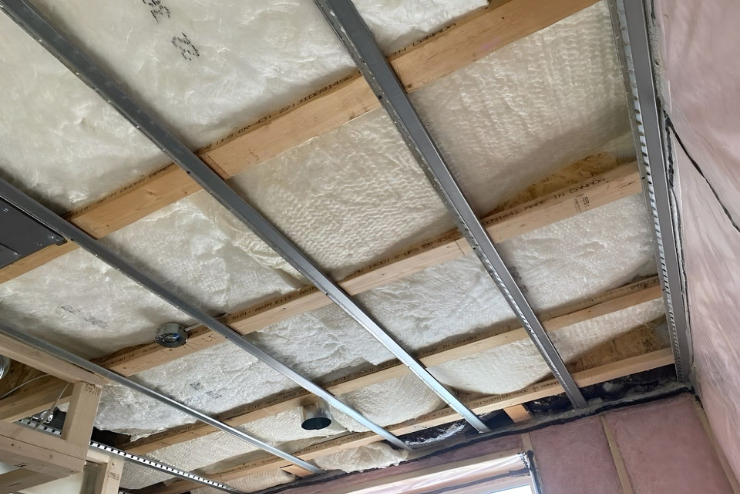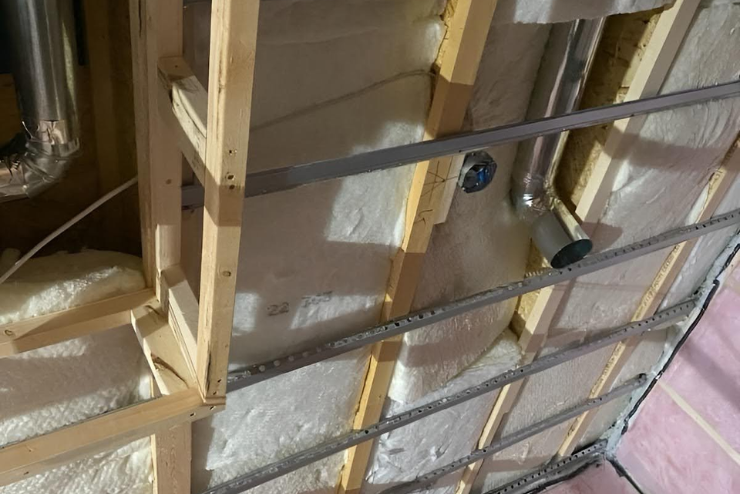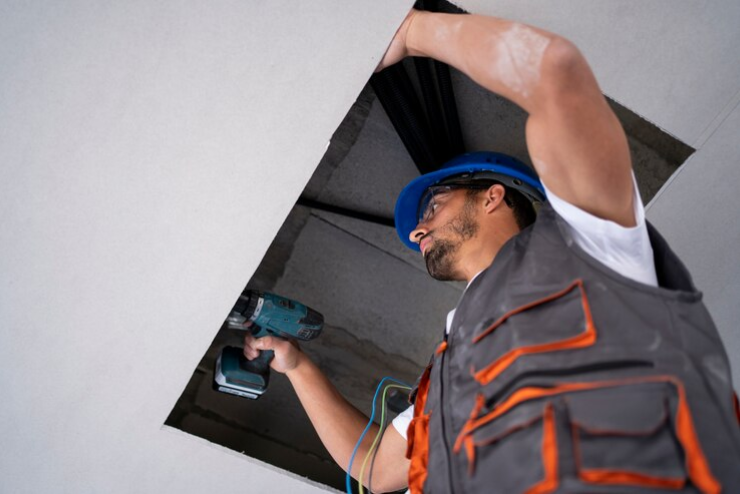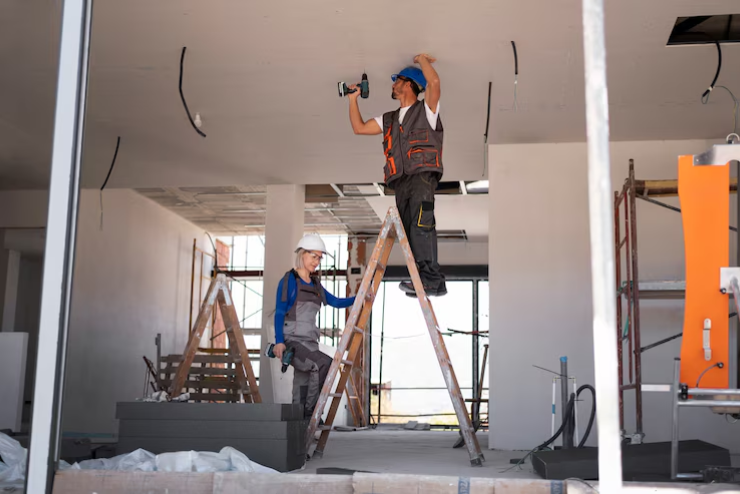
When you make an unfinished basement your living space, the sound effect from upstairs on those living downstairs or vice versa is generally overlooked. The sounds coming from a TV upstairs can sound amazing to you if it’s a Sunday or you are in a good mood. But not when you are seriously working on something in your basement office. The same goes true if you try to sleep on the first floor and there is a lot of noise coming from the TV in the basement.
Aren’t there any ways to solve these noise issues? Of course, there are. Here we have come up with ways to soundproof the basement ceiling of your home. Before diving into it, let’s find out the areas to soundproof in a basement.
Your basement needs soundproofing, but which areas should you start from?
One of the biggest sound contributors in your home is the basement ceiling. The sources of sounds could be vibrations from footsteps, dropped items, and the list goes on. Seal any cracks, holes, and gaps on the floors (subfloor) above your basement. Doing so will ensure that these minute crevices are not allowing the noises to sneak into the basement.
Add new mass layers to the soundproof basement ceiling. Form these new layers with materials like mass-loaded vinyl, drywall, etc. for basement sound insulation. You can also consider getting soundproof panels installed for added security as it will help in noise reduction by absorbing and reflecting sound.

If you think that simply closing your door will keep away the noise from the basement at bay, you need to rethink. A soundproof basement is the ultimate solution. It also comes with additional privacy, especially when you have decided to set up the home studio or office for which you need minimal distractions. Add door seals or sweeps to soundproof the doors and for closing the gaps between doors and staircase/floors. Door sweeps or seals are solid and dense so that the sound waves cannot easily pass through them. Adding a soundproofing foam is also a good idea.
As far as basement walls are concerned, add soundproofing boards to minimize the flanking and mechanical noises coming from the basement. You can even opt for small sound barriers, as small as less than half an inch thick, for basement sound insulation. If you are creating separate rooms in the basement and creating walls there, follow the decoupling process. It lets you leverage sound isolation systems. Need more to soundproof the basement ceiling? Decorate the basement walls with acoustic panels personalized with art and make your home more beautiful. One act, double impact.
Floors are also one of the areas impacted by the noise coming out from the basement. This happens especially in homes that have unfinished basements with concrete slabs.
What you can do here is install an absorption floor between the concrete and the final floor. The other thing you can try is placing flooring underlayments under carpets.
Check the positioning of the HVAC system, plumbing pipes, and furnaces of your home. Consider their level of reverberations and how these transfer through the basement walls.
Insulating pipework addresses the noise and sounds before they can transform into the noise in your home. Also, you can fill the space between the walls and pipes with different soundproofing materials.

It’s time to silence the sounds coming from the basement ceiling. Here are the steps –
Start by sealing the gaps and cracks in the subfloor above the basement. You can use a ladder and a calking gun. Gather tape measure, utility knife, and straightedge to score. Now, cut the drywall sheets into strips and fill the cracks and cavities.
After sealing the subfloor, install the first layer of drywall. Want the best results? Use soundproof drywall. After securing the first layers, add the second layer of drywall to create a dense barrier against noise.
Acoustic insulation like fiberglass or mineral wood are effective basement sound insulation method. Distribute the insulation evenly between the joists to make the basements quieter.
Install a resilient channel between the drywall and the framing studs. These specialized metal furring strips reduces the amount of vibration occurring through the wall and hence reduce the sound transmission.
Install the final ⅝” thick drywall to create a barrier against unwanted sounds. This additional mass further enhances the soundproofing effectiveness, ensuring minimal noise transfer between floors.

Soundproofing basement ceiling materials must be used for every dwelling. This is done to minimize the noise levels between units –
Soundproofing basement ceiling is not a challenging task provided you take all the steps as mentioned above, not to mention the added benefits that it comes with –
Having a soundproof basement plays a significant role in reducing exposure to continual noise – particularly regular exposure to sharp sounds. And nobody wants to live in a noise-filled home in this overstimulated world.
A soundproof basement allows for reduced noise which leads to a reduction in stress levels, enhanced sleep, improved memory, and overall well-being.
Adding basement sound insulation means you are giving way to a quiet space in your home. This new quiet space could be used as a revamped home theater, yoga room, art studio, or home office. Having minimal disruptions means increased concentration and focus.
A quieter home environment helps improve your mental health as it makes the individuals living in the home feel away from the chaos. Thus, it lets you peacefully unwind after a long day.
Home is your place of comfort where you relax after a long day at work. Amidst the hustle and bustle of daily life, your home should be a designated retreat where you and your family can feel calm. And it is only possible when your home is away from unnecessary sounds and noise.
Basement sound insulation is a valuable thing to do that enhances both the functionality and comfort of your home. The benefits of soundproofing to existing basements extend beyond just noise reduction, contributing to better focus, mental health, and overall stress levels.
Whether you use your basement for work, leisure, or as a retreat, a soundproofed ceiling ensures a peaceful and quiet environment, making your home more enjoyable for everyone. Bees Build Ltd. specializes in creating customized soundproofing solutions to enhance the tranquility of your basement space.
Leave a Reply